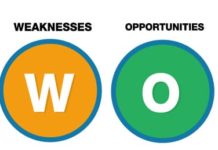People with high EQ are known to have excellent social relationships. They might not have exceptional talent, but they are generally well-liked everywhere they go. According to an American psychologist, merely 20% of IQ contributes to a person’s success. In contrast, EQ contributes up to 80%. This demonstrates the crucial importance of EQ in everyone’s lives.
As a parent, you would naturally expect your child to be successful in the future. So how do you know if your child has a high EQ? This will help you guide your child’s development. Pay attention to how they communicate: If your child frequently says these 3 sentences, you can be happy, as they are signs of a high EQ.
“Are you tired, Mom/Dad?”
Children with high EQ are often empathetic and can detect unusual moods in others. For instance, when their parents return home late from work, they may ask questions like: “Are you tired, Mom/Dad? Is your work stressful?” Or, when they see their mother working and sweating, they may ask: “Are you thirsty, Mom? Let me get you some water.”
Such children tend to grow up with high EQ and maintain harmonious relationships with others.

Children with high EQ are often empathetic and can detect unusual moods in others
“I can do it myself; I’m okay”
When faced with a situation, children with high EQ consider the feelings of others. In general, if they believe they can endure it, they will.
Here’s an example about a 5-year-old child who accidentally fell and scraped their knee. When the mother arrived to pick them up, she wanted to carry them to ease their pain, but the child politely declined: “I can walk by myself, Mom. You’re already carrying my backpack; it’s too heavy.”

When faced with a situation, children with high EQ consider the feelings of others
“I’m a good kid, I can’t do that”
Children with high EQ know how to control themselves and remember what their parents have told them. They often remind themselves: “I’m a good kid, I can’t do this or that.”
As they grow older, such children will develop high emotional intelligence. They can control their feelings and have strong self-control. This is because they understand what they want and need, and they don’t do things blindly or impulsively.
While IQ can be inherited, EQ is a skill that not everyone is born with. However, EQ can be nurtured with the right guidance. With careful parenting and instructions, children can grow up to be empathetic and well-liked by others.




































